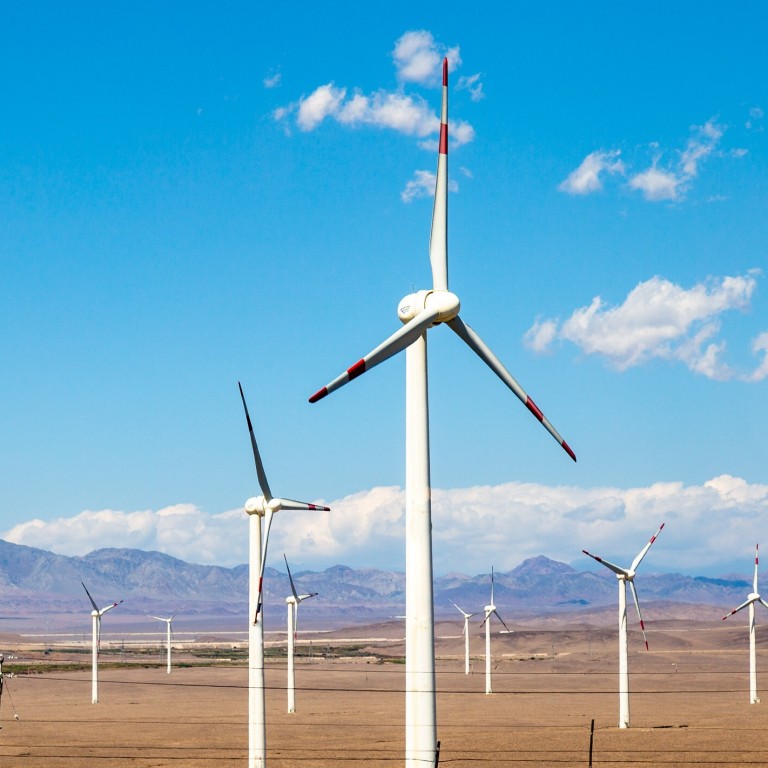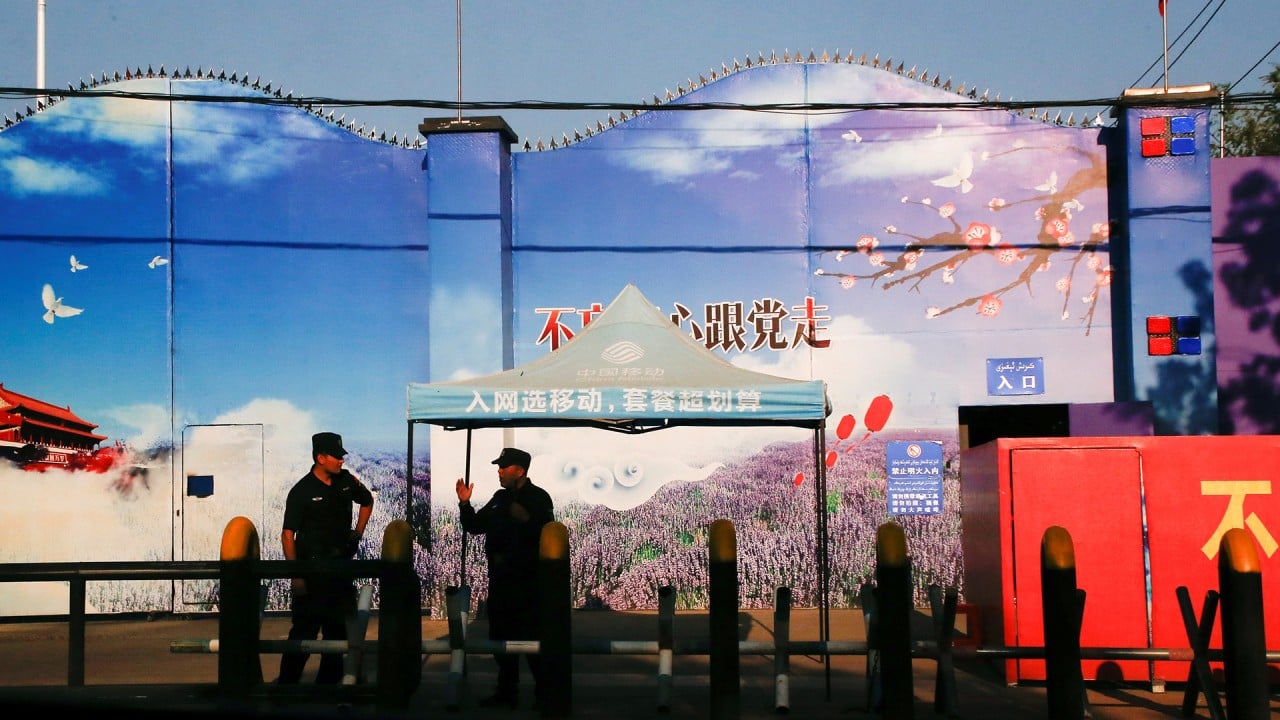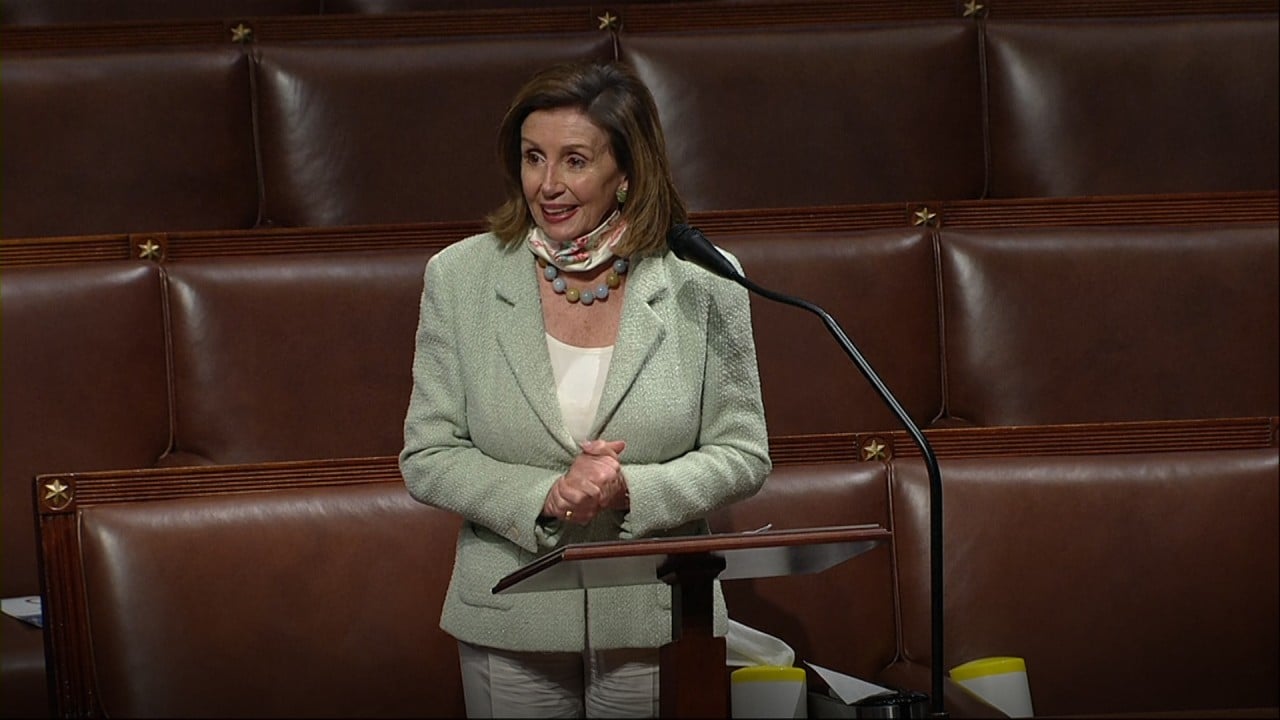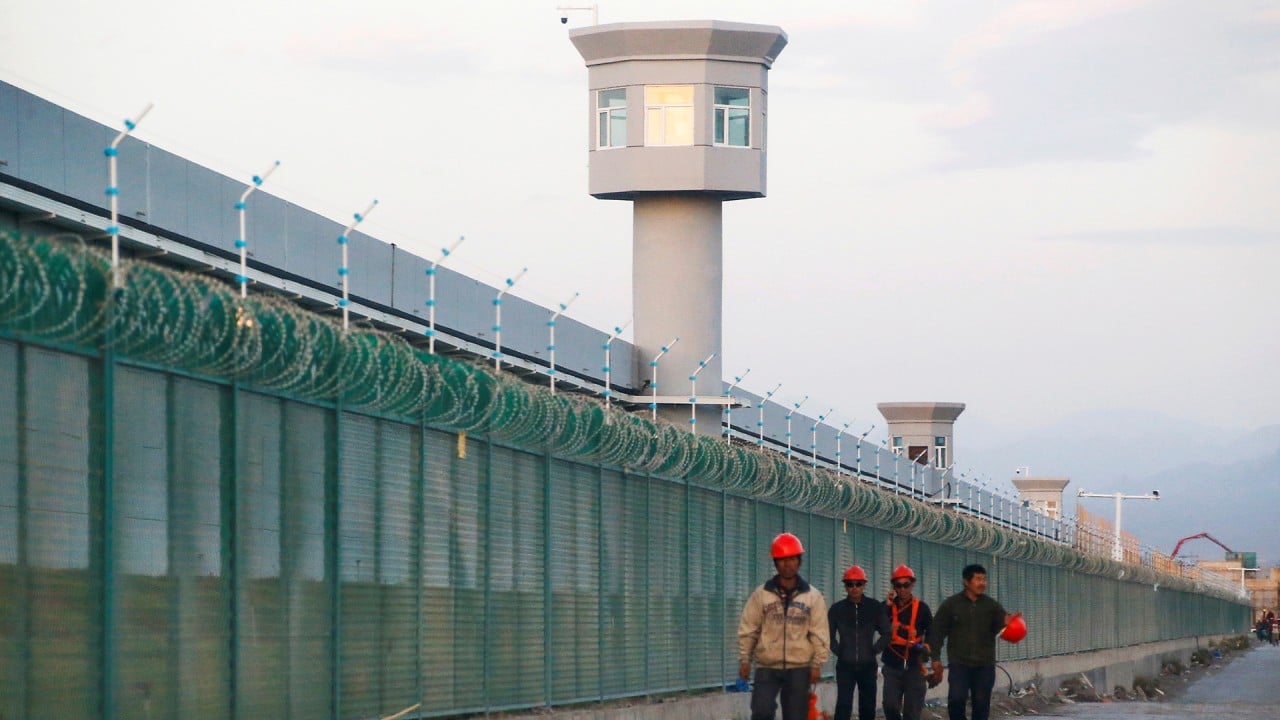
China’s Xinjiang more than doubled its US exports in 2020, despite Trump’s sanctions and bans
- Xinjiang’s exports to the US rose by 116 per cent last year, led by strong sales of wind turbines, some chemicals and Christmas decorations
- Figures come as new US President Joe Biden plots his course on Xinjiang, but analysts do not expect a dramatic shift from hardline Trump era
Xinjiang’s exports to the United States more than doubled last year, despite increasing pressure on US companies to cut ties with the western Chinese region.
Shipments rose by 116 per cent in 2020 compared to 2019, analysis of Chinese customs data shows, led by strong sales of wind-powered electric generating sets, which jumped by 3,265 per cent from a year earlier and accounted for almost one quarter of all Xinjiang’s exports to the US.

02:27
US declares China has committed genocide in its treatment of Uygurs in Xinjiang
“The forcing of men, women and children into concentration camps; trying to, in effect, re-educate them to be adherents to the ideology of the Chinese Communist Party, all of that speaks to an effort to commit genocide,” Blinken said during his Senate confirmation hearing.
Beijing hit back at the accusations, with Hua Chunying, a foreign ministry spokeswoman, issuing a strongly worded rebuke at a press conference on Wednesday.
“Crimes against humanity and genocide are clearly-defined in international law. ‘China committing genocide and crimes against humanity in Xinjiang’ is a completely false allegation and a malicious farce fabricated and hyped up by certain anti-China, anti-communist forces, with Pompeo being a fanatical pioneer,” Hua said, referring to former US secretary of state Mike Pompeo.
In the second half of 2020, as US lawmakers issued a stream of sanctions, blacklists and bans covering Xinjiang-made goods, trade continued to flow, before drying up to an annual low in December. Even in the last month of the year, as Xinjiang’s American-bound exports dwindled to US$14.6 million, they were still 1.4 per cent up from a year earlier.
While the cotton-related products are still the regional economy’s number one item, we’ve seen machinery, electronics and chemicals catching up
The focus of much of the Trump administration’s regulatory action was cotton and cotton products, with a series of withhold release orders restricting their trade because of alleged forced labour in the supply chain. But Xinjiang’s direct cotton shipments to the US are minimal, as it typically enters the garment supply chain elsewhere in China or Asia, at which point it can be difficult to trace.
“While the cotton-related products are still the regional economy’s number one item, we’ve seen machinery, electronics and chemicals catching up, they are growing much faster,” said Lianchao Han, a former Chinese foreign ministry staffer and veteran advocate for Chinese human rights in Washington.
American firms bought US$27 million of acyclic polycarboxylic last year, a chemical that can be used to modify cotton, the dominant commodity that remains in the crosshairs of the incoming Biden administration.
The overwhelming expert consensus is that forced labour is so widespread that there is a risk of its presence at virtually any workplace or worksite in Xinjiang
A range of mundane household items also enjoyed a bumper year. Exports of Christmas decorations made in Xinjiang soared by 132 per cent last year to more than US$25 million, while purchases of Xinjiang’s artificial flowers blossomed, rising 81.4 per cent year on year.
Anita Dorett, programme director at the Investor Alliance for Human Rights, said that even items as ordinary as these should be treated with caution by international buyers given the opacity of the Xinjiang supply chain.
“Forced labour in Xinjiang is pervasive. The overwhelming expert consensus is that forced labour is so widespread that there is a risk of its presence at virtually any workplace or worksite in Xinjiang,” she said.
“As forced labour in Xinjiang is state-sponsored, the lack of transparency and free access to workers and local communities who are closely surveilled by authorities, makes it near impossible to conduct credible due diligence in Xinjiang.”
The Uygur Forced Labour Prevention Act, which failed to reach the US Senate floor after passing through the House of Representatives last September, would effectively ban all imports from Xinjiang into the US, unless they can be determined not to be products of forced labour.
Theoretically, even Christmas lights could be banned. Lawmakers are expected to reintroduce it in the new Congress, which began this month.
“This is likely to remain an area of focus where restrictions from the Biden administration will come in the near term as the restrictions proposed by Congress can be imposed through executive action as well,” wrote analysts at Beacon Policy Advisers in a note.
In October last year, four months after former US president Donald Trump signed the Uygur Human Rights Policy Act, which paved the way for sanctions on companies and individuals linked to alleged human rights violations, Xinjiang had its biggest month for exports to the US, with the total value coming in at US$190 million.

03:21
US House of Representatives sends Uygur Human Rights Policy Act to Trump’s desk for approval
Shipments of American goods to Xinjiang meanwhile fell by just over 1 per cent for the whole year, with strong midyear shipments of cotton harvesting equipment inflating the figures.
The autonomous region is becoming a huge policy issue for governments in the West.
The European Union (EU) was criticised for agreeing to an investment treaty with China at the end of last year that many thought did not push hard enough on human rights.
The European Commission said the deal included commitments on forced labour and the ratification of the relevant international labour organisation conventions, but critics argued that these measures would not be binding.
Chinese customs data showed Germany, the biggest EU economy, bought US$111.6 million worth of goods from Xinjiang last year, a decline of 1.2 per cent on 2019, while shipping US$134 million worth of goods the other way, bolstered by US$41 million worth of machinery parts.
In Belgium, the seat of EU power, purchases of Xinjiang-made goods soared 223 per cent last year to US$124.5 million. Italy’s purchases of Xinjiang goods rose 11 per cent.
In an interview with the Trade Talks podcast released this week, the European Commission’s Director General for Trade, Sabine Weyand, also said the bloc aims to “come forward with a draft law in the middle of this year” that would effectively ban products made using forced labour from the EU market.

01:54
China hits back at UK claims of forced sterilisations and other human rights abuses against Uygurs
Canada saw a 30 per cent increase of purchases from Xinjiang last year. This week, Ottawa announced a series of measures directed at the region, including export controls and the prohibition of goods found to have been made using forced labour.
China’s Ministry of Commerce spokesman Gao Feng said last Thursday that the trickle of bans on Xinjiang-made goods would damage efforts to restore the global economy from the shock of the coronavirus pandemic, adding that Beijing would “take all necessary measures to safeguard the legitimate rights and interests of Chinese companies”.
British parliamentarians on Tuesday voted down a proposal that would have banned the government from making trade deals with countries seen to have committed genocide. The motion was seen to have been directed at China and Xinjiang specifically. British imports of Xinjiang goods fell almost 10 per cent last year, to US$136.8 million.

